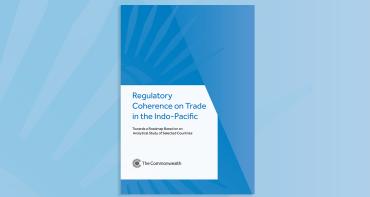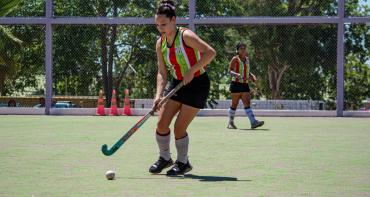Kiritimati is the largest atoll in the island group, and the largest atoll in the world, located 3,301 kilometres north east across the Pacific Ocean from the Gilbert Islands, the main island group. From Tarawa it can only be reached via Fiji, with only one flight connection available a week.

Kiritimati is the largest atoll in the island group, and the largest atoll in the world, located 3,301 kilometres north east across the Pacific Ocean from the Gilbert Islands, the main island group. From Tarawa it can only be reached via Fiji, with only one flight connection available a week.
It accounts for almost half Kiribati’s land area but only about five per cent of the 110,000 population. The entire island is a wildlife sanctuary, and has an emerging eco-tourism industry.
The consultation in Kiritimati was a key part of a review of Kiribati’s investment policy framework that commenced in July 2017. The review aims to create a predictable business environment through improved regulatory and institutional frameworks, and a conducive investment climate for new industries and trade.
The review was undertaken against a background of the government’s 20-year development plan (KV20) to boost the country’s prosperity, in part by improving levels of foreign direct investment and developing key sectors such as fisheries and tourism. The government has clearly stated its ambition to create more job opportunities and income for I-Kiribati (the people of Kiribati), especially the youth, women and those living on the outer islands, such as Kiritimati.
While basic investment-related legislation is in place, it is somewhat outdated and requires review to ensure that it supports KV20 and alignment with international best practices and the government’s regional obligations, such as the PACER Plus (Pacific Agreement on Closer Economic Relations) agreement, signed in June 2017.
The immediate task of the consultation was to present the emerging findings from the first consultations in July in the capital Tarawa, gather additional inputs and comments on the ground, and to sensitise stakeholders on key investment policy or concerns.
In all, 24 stakeholders from government ministries and the private sector attended the consultation, which was chaired by the National Trade Adviser. They included representatives from four ministries – Commerce, Foreign Affairs, Environment and Justice, as well as the Customs Agency, Development Bank and Tourism Division. Stakeholders from private shipping companies, importers and wholesalers and retailers also attended.
The consultation offered a chance to bring participants up to date with the review process and to discuss key investment policy issues. It also allowed participants a good opportunity to highlight constraints on the development of the island.
These included a lengthy investment approval process due to regulatory and institutional challenges; a lengthy land lease approval process; poor ICT network connectivity – hindering the growth of e-commerce; the lack of a regulatory framework to support e-commerce; limited support for the development of SMEs, and poor infrastructure to support investment in key sectors where Kiribati has a comparative advantage, such as fishing, tourism and copra.
The consultation in Kiritimati provided positive outcomes. It delivered valuable input and comments for inclusion in an investment policy statement, which will be completed later in 2018.
It also assisted the National Trade Adviser in drafting a policy paper that informed the drafting of a new Foreign Investment Bill, also expected later in the year.



